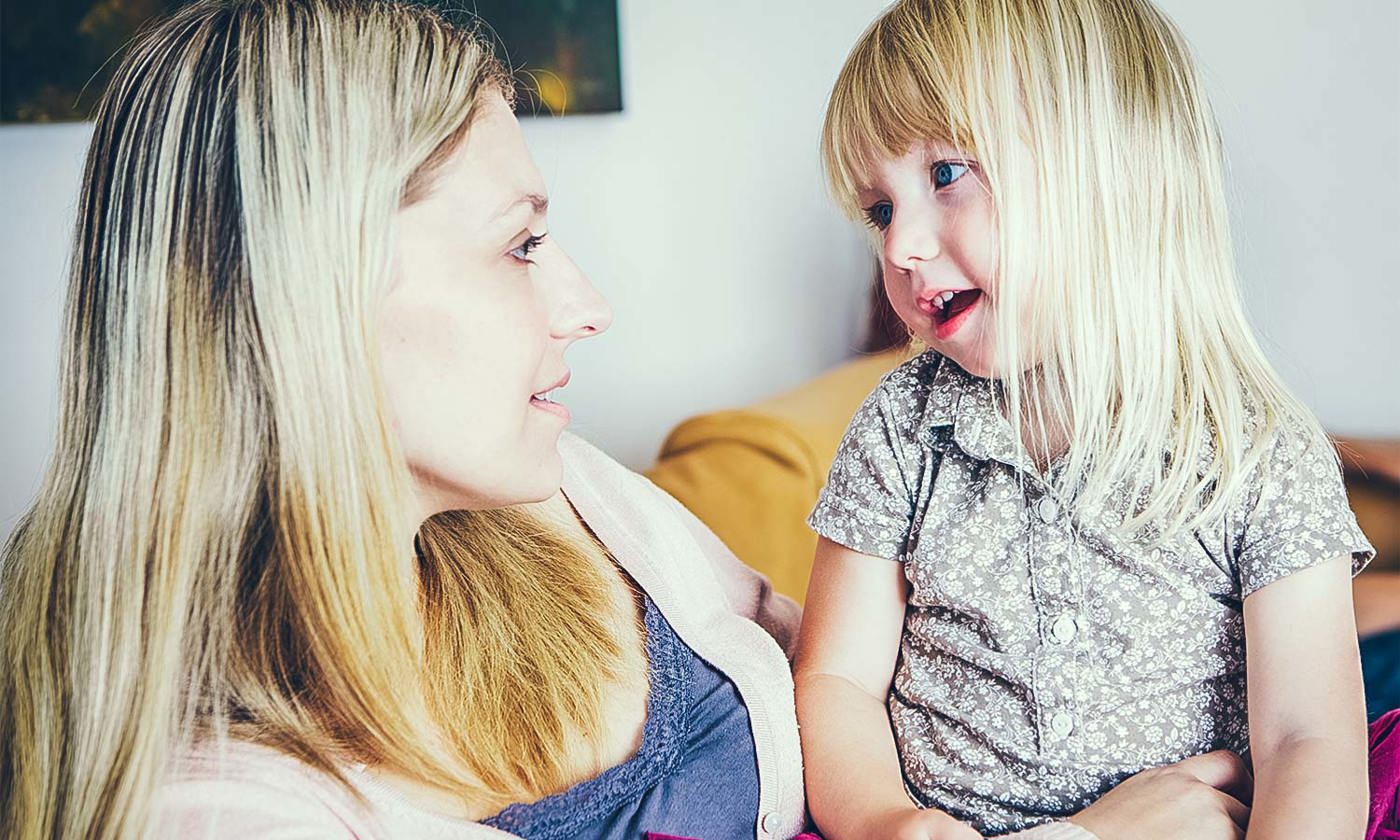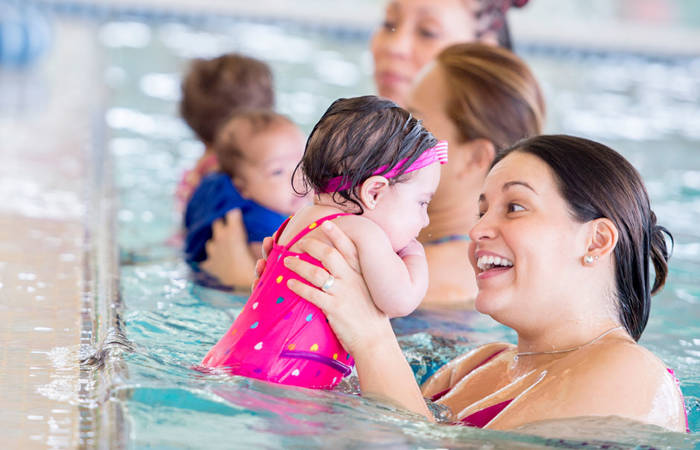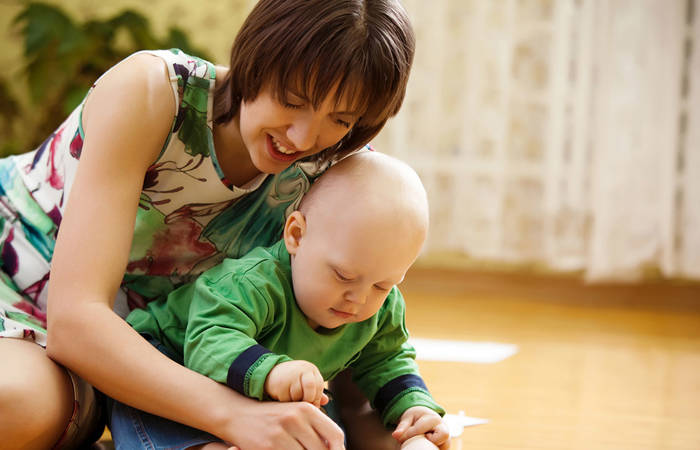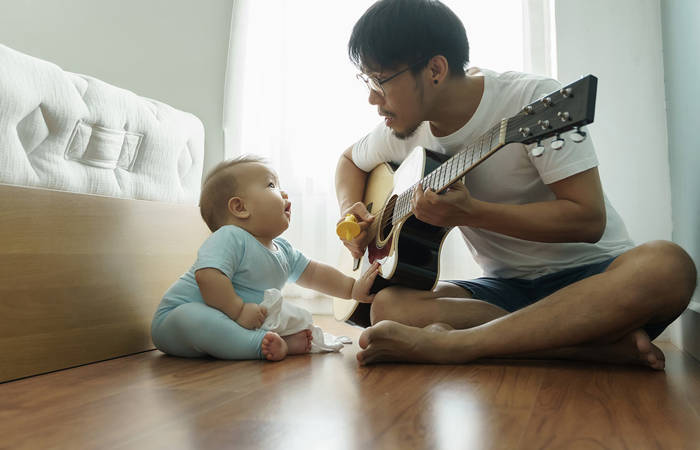Like what you see?
Sign up to receive more free parenting advice.
Thank you for subscribing to our newsletter!
Early Learning

Credit: iStock.com/track5
Use your words!
Found yourself saying that recently or just remember saying it? Actually, it's a rather useful little instructional offering in the adult world as well at times. But when it comes to children's speech and conversational development, it's not a joke.
"There is a place for baby talk: when children are babies," says Professor Donna Pendergast.
"But that's it; at the very earliest stages of their learning."
The Head and Dean of Queensland’s Griffith University School of Education and Professional Studies says it's vital for parents and educators – and everyone, really – to model good and respectful conversation around children.
"They learn through mastering, but that comes from watching other people.
"It's really crucial that children are spoken to in a way that gives them the sense that they're important and valued in the family environment."
Professor Pendergast says children who are spoken to articulately and not babied are able to better develop verbalising and listening skills.
She says in the formative years, that critical time from birth to five years old, this gives children exposure to conversation in different and unexpected ways which contributes to effective speech and listening skills development.
"If your child is effectively engaged in conversation from an early age, they grow to be someone who can adapt and be resilient enough to communicate with someone who is unexpected or be able to meet someone unknown.Professor Donna Pendergast
The value of respectful conversation
But it is later on, during primary and secondary schooling and then working life, that it is paid off.
"The value of respectful conversation and communication cannot be underestimated," she says.
"It is about their future employability, their ability to communicate well, the building of resilience and the ability to appropriately convey information – even if that information is negative."
Professor Pendergast says the knowledge base that comes with a child's exposure to robust and respectful conversation is self-evident.
What isn't as obvious, however, are the emotional and social benefits.
"If your child is effectively engaged in conversation from an early age, they grow to be someone who can adapt and be resilient enough to communicate with someone who is unexpected or be able to meet someone unknown.
"The cognitive experience alone is beneficial."
Speaking in full sentences and engaging children in "adult" conversations is something long-time librarian, mum and classroom volunteer Claire Grandcourt is passionate about.
Engaging your child in real conversations
Claire, who has worked in public libraries for more than 20 years, says there is a clear divide between the children who are engaged in real conversations and those who are not.
She says especially with the flood of hand-held devices into family life during the past decade, the need for good conversation at home is paramount.
"If a child cannot communicate it leads to frustrations and it can also affect behaviours," she says.
"If a child isn't engaged in conversation with a parent, or if a parent doesn't speak to their children in clear, complete sentences, then the child will lose interest in that. It's just like if a parent doesn't engage in play with their child.”
Now a little common sense: by adult conversation, we're saying full sentences and a sensible, engaging and accessible tone. Content censoring is always important.
Both professionals maintain good conversation opens the lines of communication. Children can articulate their needs, but also have the means of seeking explanation or questioning someone in a respectful but confident manner when something doesn't make sense.
Claire takes a step back though, to something far more fundamental.
"If parents don't speak with their child as an equal, they are limiting their ability to really know their child's interests and what's going on with them," she says.
"They cannot be fully involved with their child and what they like or don't like; what interests them, what their fears or concerns are, what their favourite things are.
"We do see a lot of disengagement with children. Parents are undoubtedly busy. But there are always distractions and often it's the device we carry around in our hand.
Making the most of support services
Claire says while it could be tricky for parents to engage in conversation with their children, there was an abundance of support and great services. The key was knowing where to look.
Libraries, child health nursing centres, your GP, paediatricians and speech therapists and pathologists were great places to start.
"We have identified that while there is a great deal of support for parents and children from birth to about six weeks of age, and then through to the age of one, there is a big gap between the ages of one and then four, when four-year-old immunisation is due.
"So, there have been a number of programs and a lot of information produced to help bridge that gap. This will give parents support, but it also means that issues which might not be picked up until kindy or early primary school, are more likely to be identified sooner."
Services will vary from region to region throughout the country, but the public library and your GP is a good starting point.
In the end, it all comes down to this:
"A child's ability to communicate comes from their parents," Claire says.
"We don't want to guilt mothers (or fathers), or judge. We know they have enough of that as it is.
"But we do need to encourage all parents to engage. Speak to your children in full sentences. Don't use baby talk and encourage the correct use of words and phrases."
Both experts assert that it's not just about the here and now, the developmental milestones and a well-developing child. It's about setting them up for the future.
Top tips for speaking to children
- Use complete sentences when speaking to children.
- Address them as an equal, don't talk down to children.
- Check content and age appropriateness of subject matter.
- Guide children in the correct use of words and context.
- Seek out help if you need it through your library or GP as a good first step.
Get Advice
Real parents. Real problems. We’re here with a group of leading early learning and parenting professionals to answer your questions.



